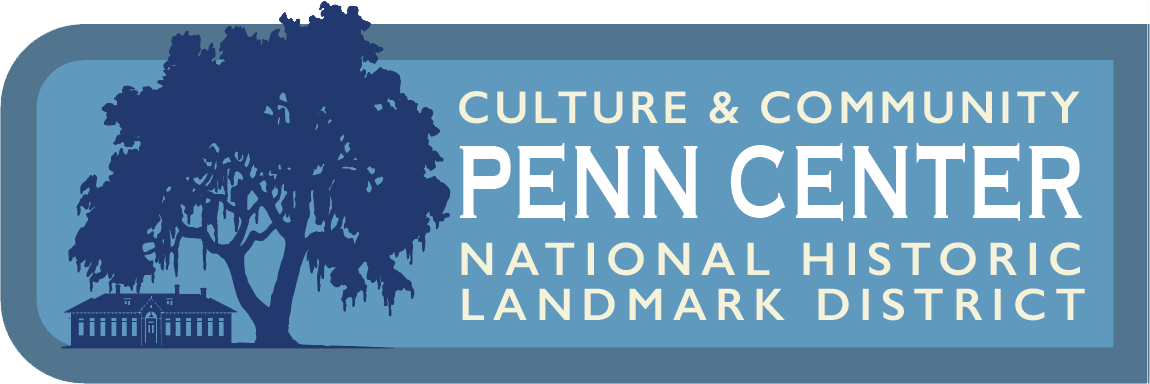Penn Center research residencies immerse students in Gullah-Geechee culture and community
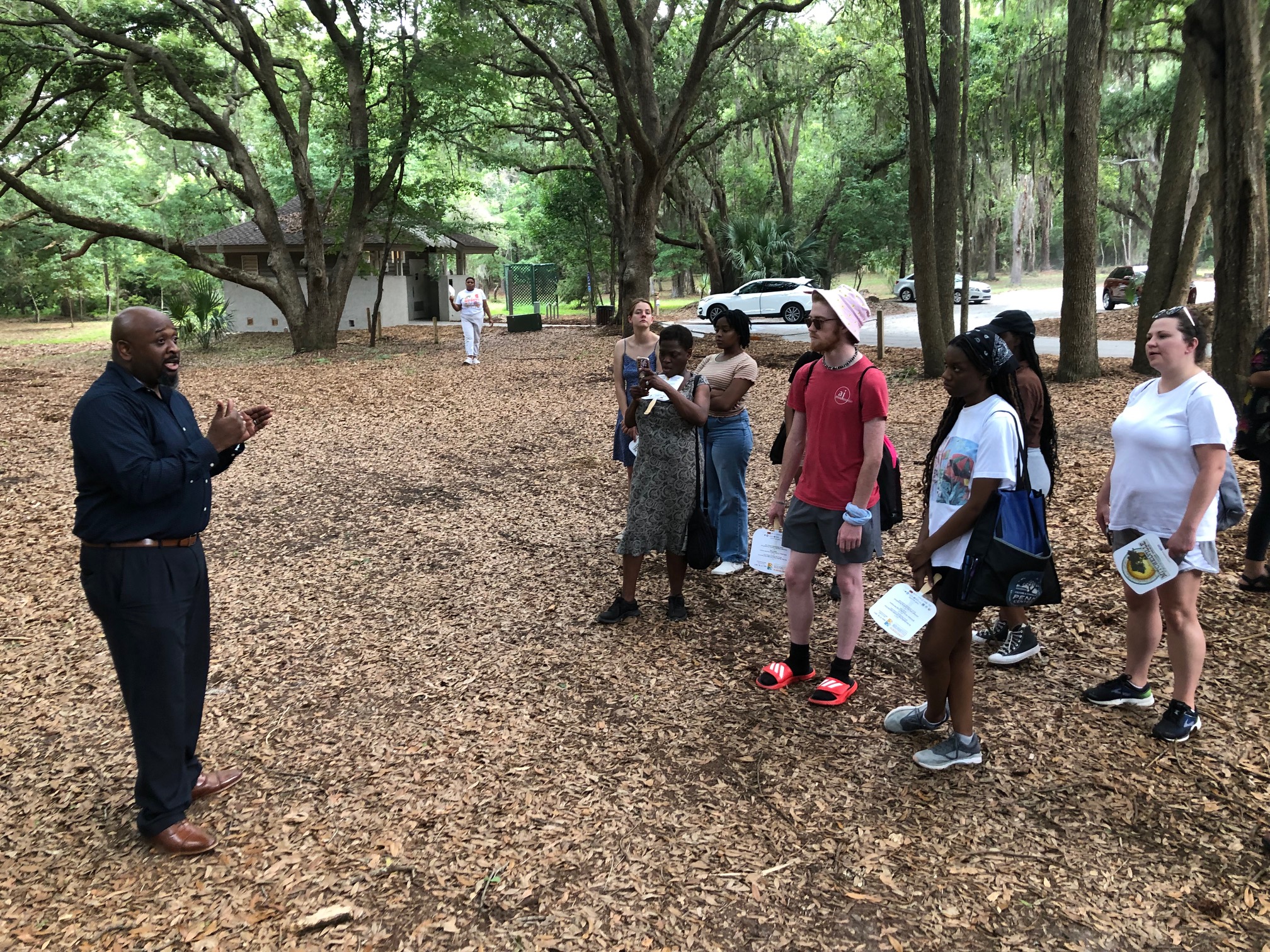
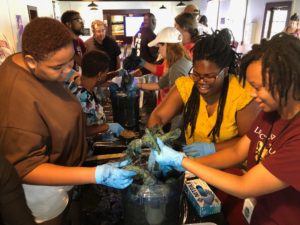
Students and faculty from the University of Georgia, Spelman College, Morehouse College, Emory University, the College of Charleston, the University of North Carolina at Chapel Hill, and the University of Kentucky gathered at Penn Center National Historic Landmark District on St. Helena Island, SC for a five-day cycle of research residencies in June 2022. The summer student research residencies are one of the key programs of Culture and Community at the Penn Center National Historic Landmark District, a multiyear partnership between Penn Center, one of the most significant African American cultural and historical institutions in the U.S., and the Willson Center for Humanities and Arts at UGA. The Culture and Community project is funded by a $1 million grant from the Mellon Foundation.
This inaugural year of the program brought students, faculty, and community experts from across the southeastern U.S. for unique place-based studies on the theme of Land, Liberation, and Justice. Participants took part in classes, excursions, and workshops at Penn Center and in the surrounding Sea Islands region.
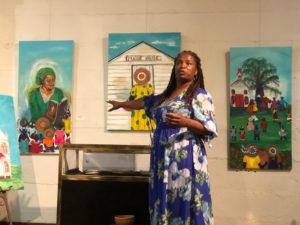
Barbara McCaskill, UGA professor of English and Willson Center associate academic director; Valerie Frazier (PhD ’02) associate professor of English and founder and director of the 1967 Legacy Program at the College of Charleston; and Nik Heynen, Distinguished Research Professor of Geography at UGA and visiting faculty in the Food Studies Program at Spelman College, all led students in on-site research and learning activities tied to credit-bearing courses or academic programs at their home institutions.
On the first full day of the residencies, students were given a tour of Penn Center and took part in a discussion of its history with Dr. Emory Shaw Campbell, the project’s Community Research Partner, the author of Gullah Cultural Legacies (Third ed., 2008), and executive director of Penn Center for twenty-two years. A tour of the center’s York W. Bailey Museum with Dr. Marie Gibbs, the museum’s docent, was followed by a workshop on the Fifteenth Amendment with Dr. Charles S. Johnson III, retired vice president and counsel for external affairs at Tuskegee University.
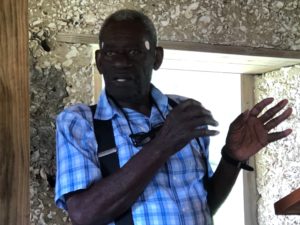
As part of their workshop on Liberation Farming, Indigo, and Community Economic Development, Heynen and activist Maurice Bailey, director of the nonprofit Save Our Legacy Ourself of Hog Hammock, Sapelo Island, Georgia, led students and faculty in an indigo-dyeing activity during which they created their own unique and authentic indigo designs on fabric. Bailey and Heynen’s work together on Sapelo Island has been featured in The New York Times, The Bitter Southerner, Scalawag: Reckoning with the South, and many other publications and media. Students also engaged with St. Helena Island artist Lisa Rivers, owner of a gallery in downtown Beaufort, SC. about her exhibition of paintings, A Gullah Homecoming, in the York W. Bailey Museum at Penn Center.
A day trip to Hilton Head Island, SC brought students to Mr. Thomas Barnwell’s property, where he has worked with local historians, architects, and historic preservationists to restore and research an 18th-century tabby structure that had fallen into ruin. Mr. Barnwell and his collaborators on the project shared the story of the white planters and enslaved families who lived together on the place, and of how its history was unearthed and the structure rebuilt.
The Hilton Head Island trip also included a visit to Mitchelville Freedom Park. The park’s executive director Ahmad Ward guided students and faculty on an educational walking tour of this site of the United States’ first self-governed community of formerly enslaved African Americans.
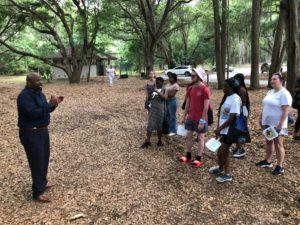
On the final day of the residencies, students participated in a service project by helping to tend the community vegetable garden on the Penn Center campus, followed by a guided tour of historic Beaufort, SC on the mainland directly opposite St. Helena and other nearby Sea Islands. Before the end of their stay, students shared their reflections on the experience of the residencies with their instructors and each other. Many expressed the desire to return for next year’s program, as well as to visit other Gullah Geechee communities in the Sea Islands region in order to participate in projects such as the reclamation of sugar cane and other heritage crops that Maurice Bailey leads on Sapelo Island.
To Tayelor Morgan, a sophomore 1967 Legacy Scholar at the College of Charleston majoring in public health and environmental and sustainability studies, the residency program’s impact was deeply personal. “My Mom and her family are from John’s Island, so they’re of the Gullah culture,” she said. “I really didn’t know much about it because it’s not taught in schools. This residency, for me, has been an eye-opener – I’m so glad I came here.”
Na’Zyia Dowdy-Arnold, a pre-law sophomore at Spelman College majoring in comparative women’s studies and food studies, was similarly moved by her experience at Penn Center. “I’ve never felt more inspired,” she said. “I’ve never felt more cultivated. I feel like I could take this knowledge that I’ve learned and share it with so many people.”
The second Student Summer Research Residencies will take place in late May 2023. Two sessions are planned this year, one featuring the theme of Community-Engaged Traditions and Practices and the other reprising the first year’s focus of Land, Liberation, and Justice. The Culture and Community at Penn Center project hosted two community conversations in spring 2022 on “Heirs’ Property: Land, Culture, and Community” and “Sacred Spaces: The Penn Center, Belief and Belonging.” Those conversations can be viewed on the program’s website. The Sacred Spaces event also featured a sound and video installation by Atlanta artist Charmaine Minniefield among the ruins of the Chapel of Ease on St. Helena, in honor of the enslaved people who built the structure in the mid-18th century. Additional community conversations, as well as an artist-in-residence program, will follow at Penn Center as the Culture and Community partnership begins its second year of public offerings in 2023.
